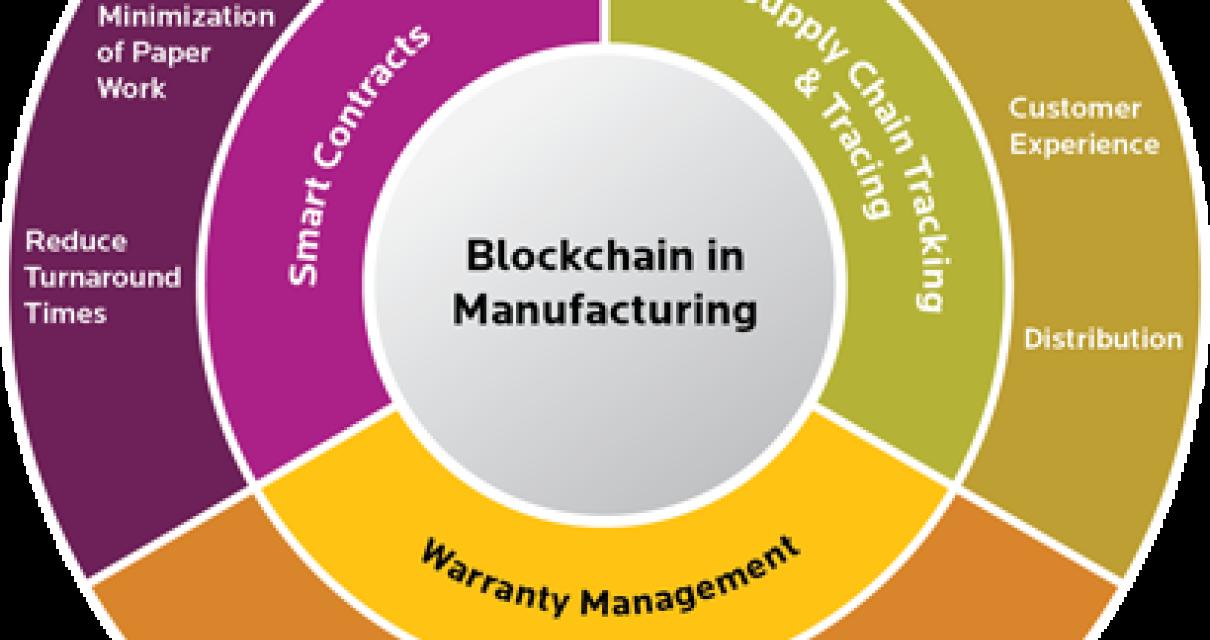A Comprehensive Introduction to the Blockchain Industry
The blockchain industry is growing rapidly, with new companies and applications jumping on the bandwagon every day. But what is blockchain technology, and why is it so important?
Simply put, blockchain is a distributed ledger technology that provides a secure way of tracking the ownership of digital assets. Transactions are recorded and verified by a network of participating nodes, and no single party has control over the data.
The benefits of blockchain technology are clear: it eliminates the need for a central authority to manage transactions, and it provides transparency and security for digital assets.
Now that you have a basic understanding of blockchain technology, it’s time to explore the various uses for this revolutionary technology. In this article, we’ll discuss some of the most important applications of blockchain technology, including:
The financial sector
The food supply chain
The entertainment industry
Smart contracts
Digital currencies
The financial sector
One of the earliest and most obvious applications of blockchain technology is in the financial sector. Currently, many banks and other financial institutions rely on intermediaries to process payments and track assets.
With blockchain, these institutions could replaced these intermediaries with a shared ledger that is accessible by all parties involved in a transaction. This would reduce costs and improve transparency, security, and trustworthiness.
Smart contracts
Another important use of blockchain technology is in the development of smart contracts. A smart contract is a digital contract that is automatically executed when certain conditions are met.
For example, a smart contract could be used to distribute shares in a company automatically when the terms of the contract are met. Or it could be used to settle a financial transaction automatically.
Digital currencies
One of the most exciting applications of blockchain technology is in the development of digital currencies. Digital currencies are based on blockchain technology, and they enable users to conduct transactions without involvement from third parties.
This is great news for users who want to avoid the fees charged by banks and other financial institutions. And it’s also great news for businesses because it reduces the need for a central authority to manage finances.
The future of blockchain technology
There’s no doubt that the blockchain industry is growing rapidly, and there are plenty of potential applications for this groundbreaking technology. We can only wait to see what the future holds for blockchain technology – it looks very bright!
The Evolution of the Blockchain Industry
The blockchain industry has seen significant growth over the past several years. This growth is due to the widespread adoption of blockchain technology by various industries.
The first blockchain was developed in 2008 by Satoshi Nakamoto. At the time, Nakamoto envisioned the blockchain as a way to create a transparent, tamper-proof record of digital transactions. The popularity of the blockchain has led to the development of other cryptocurrencies, such as Bitcoin and Ethereum.
Today, the blockchain technology is being used by a wide variety of industries, including banking, healthcare, retail, and supply chain management. The widespread adoption of the blockchain has created a growing demand for blockchain experts.
The following are some of the key factors that have contributed to the growth of the blockchain industry:
1. Adoption of the blockchain technology by various industries
The widespread adoption of the blockchain technology has led to the development of various applications that use the blockchain technology. These applications include banking, healthcare, retail, and supply chain management.
2. Expansion of the blockchain ecosystem
The growth of the blockchain ecosystem has led to the development of various companies that provide services related to the blockchain technology. These companies include banks, software providers, and venture capitalists.
3. Increased investment in the blockchain industry
Over the past few years, investors have poured billions of dollars into the blockchain industry. This investment has led to the development of new blockchain companies and the expansion of existing companies.
4. Decline in the value of traditional currencies
The decline in the value of traditional currencies has led to increased investment in the blockchain industry. This investment is primarily directed towards the development of new blockchain companies and the expansion of existing companies.
5. Growth of the bitcoin and ethereum cryptocurrencies
The growth of bitcoin and ethereum cryptocurrencies has been a key factor in the growth of the blockchain industry. These cryptocurrencies are based on the blockchain technology and are used to purchase various products and services online.
The Future of the Blockchain Industry
There are a lot of different opinions about the future of the blockchain industry, but most experts agree that it has the potential to become a massive global phenomenon. Here are four reasons why:
1. It's Secure
One of the main benefits of the blockchain technology is that it is highly secure. Every transaction is verified and recorded on a public ledger, which makes it incredibly difficult for anyone to tamper with or falsify data. This makes the blockchain a powerful tool for recording and tracking transactions, and it could be used to track everything from financial transactions to food safety.
2. It's Transparent
Another major benefit of the blockchain technology is that it is highly transparent. Everyone can see the complete history of all the transactions that have taken place on the network, making it a powerful tool for monitoring and managing finances. This transparency could also be used to track the movement of goods and assets, and it could help to protect against fraud and theft.
3. It's Economic
The blockchain technology is based on the principle of “distributed consensus,” which means that it is powered by a network of “miners” who are responsible for verifying and recording transactions. This process is incredibly difficult, and it is reliant on the participants of the network to remain honest and cooperative. As a result, the blockchain technology is able to create a decentralized platform that is free from the interference of third parties.
4. It's Flexible
One of the main advantages of the blockchain technology is that it is extremely flexible. It can be used to track a wide range of transactions, including financial transactions, property ownership, and healthcare records. This flexibility could make it a powerful tool for managing a variety of different transactions, and it could be used to create a tamper-proof record of all aspects of life.
The Impact of the Blockchain Industry on our Lives
The blockchain industry is constantly growing, and the impact it has on our lives is undeniable. Here are just a few ways in which the blockchain industry is changing the way we live:
1. The blockchain industry is changing the way we do business.
The blockchain industry is making it easier for people to do business with each other by creating a secure and transparent system. This is especially important in the agricultural industry, where there is a lot of food waste. By using the blockchain, farmers can track the origins of their crops and ensure that they are getting the best possible price for their produce.
2. The blockchain industry is changing the way we think about money.
The blockchain industry is changing the way we think about money. By using the blockchain, people can keep track of their finances in a secure and transparent way. This is especially important in countries where corruption is a problem.
3. The blockchain industry is changing the way we think about data.
The blockchain industry is changing the way we think about data. By using the blockchain, people can keep track of their data in a secure and transparent way. This is especially important in the healthcare industry, where patients' data is often confidential.
4. The blockchain industry is changing the way we think about security.
The blockchain industry is changing the way we think about security. By using the blockchain, people can keep track of their security in a secure and transparent way. This is especially important in the online world, where users are increasingly vulnerable to cybercrime.
5. The blockchain industry is changing the way we think about governance.
The blockchain industry is changing the way we think about governance. By using the blockchain, people can create decentralized systems that are more efficient and secure. This is especially important in areas like finance and healthcare, where traditional systems are often inefficient and insecure.

How the Blockchain Industry is Transforming Business
The blockchain industry is transforming business in a variety of ways. One way is through the creation of new business models that rely on the blockchain. For example, one company is using the blockchain to create a digital marketplace that allows customers to buy and sell goods and services without having to go through a third party.
Another way the blockchain is transforming business is through the development of new applications that use the blockchain. For example, one company is using the blockchain to create a digital ledger of all food transactions. This will allow companies to track food safety and quality, and it will also allow consumers to trust that the food they are buying is from a legitimate source.
Finally, the blockchain is also being used to create new ways of doing business. For example, one company is using the blockchain to create a digital currency that can be used to pay for goods and services. This will allow businesses to bypass traditional payment processors, and it will also reduce the cost of transactions.
Why the Blockchain Industry is Growing Rapidly
There are a few reasons that the blockchain industry is growing rapidly.
First, the technology is very secure. Blockchain is a distributed ledger that is used to record transactions between two parties. Transactions are verified by network nodes and then recorded in a public ledger. This makes it difficult for anyone to tamper with the data.
Second, the blockchain technology is transparent. Everyone can see how many transactions have been made and how much money has been transferred. This makes it difficult for people to hide their transactions or to steal money.
Third, the blockchain technology is immutable. Once a transaction is recorded on the blockchain, it is unchangeable. This makes it a reliable way to record transactions.
Fourth, the blockchain technology is decentralized. This means that the blockchain is not controlled by any one person or organization. This makes it difficult for anyone to tamper with the blockchain.
All of these factors are contributing to the growth of the blockchain industry.

The Benefits of the Blockchain Industry
There are many benefits to the blockchain industry. Some of the benefits are as follows:
1. Transparency: The blockchain technology is very transparent. It allows everyone to see all the transactions that have taken place. This makes it an efficient and secure way to conduct transactions.
2. Security: The blockchain technology is very secure. It uses a distributed network of computers to keep track of all the transactions. This makes it immune to cyberattacks.
3. Efficiency: The blockchain technology is very efficient. It allows for quick and easy transactions between different parties. This makes it a popular choice for businesses.
4. Reduced costs: The blockchain technology reduces the costs associated with traditional transaction methods. This makes it a popular choice for businesses that are looking to reduce their costs.
The Disruptive Nature of the Blockchain Industry
The blockchain industry is very disruptive. It is changing the way we do business and it is changing the way we think about trust and security.
The blockchain technology is based on the idea that there is a secure, tamper-proof ledger of all transactions that can be accessed by anyone with an internet connection. Transactions are verified by multiple parties and are not subject to the rules and regulations of traditional financial institutions.
This is a very powerful technology and it is already being used by companies to improve their operations and to reduce costs.
The blockchain industry is growing rapidly and there are many opportunities for investors.
The Inevitable Rise of the Blockchain Industry
It is no secret that the blockchain technology is slowly but surely taking over the world. The technology has been touted for its potential to revolutionize a number of industries, and the finance sector is no exception.
The blockchain is a distributed database that allows for secure and transparent communication between parties. This makes it ideal for tracking and recording transactions.
Now that we know what the blockchain is, it’s time to explore how it will impact the finance industry.
The first use case for the blockchain in the finance sector is asset registry. Asset registry is a process by which institutions track the ownership and location of assets. This can be done through a centralized or decentralized system.
The benefits of using a decentralized asset registry are that it is more secure and transparent. It also eliminates the need for third-party verification, which can save time and money.
The use of the blockchain in asset registry is still in its early stages, but it is expected to play a significant role in the future of finance.
Another use case for the blockchain in the finance sector is settlement. Settlement is the process of transferring money between two parties. It can be done through a centralized or decentralized system.
The benefits of using a decentralized settlement system are that it is more secure and faster. It also eliminates the need for third-party verification, which can save time and money.
The use of the blockchain in settlement is still in its early stages, but it is expected to play a significant role in the future of finance.
The final use case for the blockchain in the finance sector is digital asset trading. Digital asset trading is the process of buying and selling cryptocurrencies and other digital assets.
Digital asset trading is a nascent industry, and there are still many challenges that need to be addressed. One of the biggest challenges is scalability. scalability refers to the ability of a network to handle a large number of transactions without experiencing delays or disruptions.
The use of the blockchain in digital asset trading is still in its early stages, but it is expected to play a significant role in the future of finance.

How the Blockchain industry can Revolutionize our Lives
There are a few ways in which the blockchain industry could revolutionize our lives.
First, the blockchain could help reduce fraud and corruption. As the blockchain is a shared database, it can be used to track the movement of money and assets across borders, which could help prevent fraud and corruption.
Second, the blockchain could help reduce the cost of transactions. Currently, transactions can take a long time to process and can be expensive. The blockchain could help reduce the cost of transactions by allowing for faster and more efficient transactions.
Third, the blockchain could help reduce the cost of goods and services. The blockchain could help reduce the cost of goods and services by allowing for more efficient and transparent transactions.
Fourth, the blockchain could help reduce the cost of food and energy. The blockchain could help reduce the cost of food and energy by allowing for more efficient and transparent tracking of food and energy supplies.
The Potential of the Blockchain Industry
The potential of the blockchain industry is vast. Within the blockchain industry, there are a number of different sectors that have the potential to grow.
One sector that could see significant growth is the cryptocurrency industry. Cryptocurrencies are decentralized digital assets that use cryptography to secure their transactions and to control the creation of new units. Bitcoin, the first and most well-known cryptocurrency, has seen tremendous growth in recent years and is now worth more than $20,000 per unit. The potential for other cryptocurrencies to see similar growth is tremendous, and the blockchain technology could play a major role in helping them achieve this.
Another sector that has the potential to grow is the peer-to-peer (P2P) lending industry. P2P lending is a type of lending where borrowers and lenders interact directly. Lenders can find borrowers online or through other platforms, and borrowers can find lenders who are offering lower interest rates than those available from traditional banks. There are a number of platforms that offer P2P lending, and the sector is growing rapidly. In 2017, there was a total of $27.5 billion in P2P loans issued, and this figure is expected to grow to $150 billion by 2021. The blockchain technology could play a major role in helping this sector grow even further.
Another sector that has the potential to grow is the healthcare industry. The healthcare sector is one of the biggest spending sectors in the world, and it is estimated that it will reach $3 trillion by 2025. Blockchain technology could help to improve the efficiency of this sector by providing a platform for patients to share medical data and by allowing doctors to share information securely.
The potential for the blockchain industry is vast, and there are a number of different sectors that have the potential to grow. The blockchain technology could help to improve the efficiency of the healthcare sector, the peer-to-peer lending industry, and the cryptocurrency industry, among others.